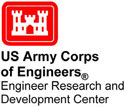 The U.S. Army Corps of Engineers Research Lab (USACE ERDC/CERL) has published data collected during a 24-month demonstration/validation project in which the Zeta Rod® Water Management System was evaluated for its ability to deliver documented water conservation results while providing corrosion, scaling, and biofouling protection in open-loop evaporative cooling systems. The report, titled “Demonstration of Non-Corrosive, Capacitance-Based Water-Treatment Technology for Chilled Water Cooling Systems” evaluated sites at four military installations in Arizona, California, and Georgia. The study included systems where the technology was previously installed as part of a 2010 evaluation (ERDC/CERL TR-09–20) and added systems that broadened the range of water qualities and operating conditions evaluated.
The U.S. Army Corps of Engineers Research Lab (USACE ERDC/CERL) has published data collected during a 24-month demonstration/validation project in which the Zeta Rod® Water Management System was evaluated for its ability to deliver documented water conservation results while providing corrosion, scaling, and biofouling protection in open-loop evaporative cooling systems. The report, titled “Demonstration of Non-Corrosive, Capacitance-Based Water-Treatment Technology for Chilled Water Cooling Systems” evaluated sites at four military installations in Arizona, California, and Georgia. The study included systems where the technology was previously installed as part of a 2010 evaluation (ERDC/CERL TR-09–20) and added systems that broadened the range of water qualities and operating conditions evaluated.
Results and observations indicated that the technology delivered an average 20% reduction in makeup water usage and 50% reduction in blow-down, while meeting or exceeding criteria for protection of equipment from scale, corrosion, and biofouling. Reductions in make-up water represent a major water savings for an installation, while reductions of blow-down water represent a significant lessening of load on installation’s wastewater treatment system. (The direct use of the blow-down water for grey-water purposes appears feasible, but was not demonstrated.)
The technology was effective in water treatment and deposit control for a wide range of water conditions, from very soft, corrosion-promoting water to very hard, scale-promoting water. The validated applications are recommended for consideration by decision makers to reduce military installation chemical utilization and support Department of Defense Net Zero Water goals.
Click Here to link to the Full Study: “Demonstration of Non-Corrosive, Capacitance-Based Water-Treatment Technology for Chilled Water Cooling Systems” Report Number: ERDC/CERL TR14-15
Related Papers:
Cooling Tower Institute (CTI) Green Technologies 2012
“Demonstration of Electronic Capacitor-Based Water Treatment System for Application at Military Installations” Report Number: ERDC/CERL TR 09–20

